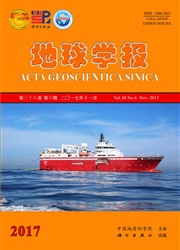

 中文摘要:
中文摘要:
岩溶地下水脆弱性评价是基于保护岩溶含水层从而有效地管理和利用地下水提出的有效方法和手段。我国西南岩溶区大多数地区缺少应有的地下水保护带,地下水比较容易受到污染。通过采用改进的斯洛文尼亚模式,考虑四个因子:覆盖层(O)、径流特征(C)、降雨条件(P)、岩溶发育程度(K),对重庆市青木关岩溶槽谷地下水水源地的固有脆弱性进行了定量评价。结果表明:流域范围内12.6%为高脆弱性地区;43%为中等脆弱性;44.4%为低脆弱性区域。消水洞及周边100m和消水河及其两边10m,以及岩溶管道发育地区为高脆弱性区。大部分岩溶区为中等脆弱性区。砂岩地区为低脆弱性地区。评价结果与实际吻合。该评价结果为各级决策部门合理规划利用和保护地下水资源提供简单明了的科学依据。该方法对于川东岩溶槽谷地区脆弱性评价有推广价值。
 英文摘要:
英文摘要:
Assessment on the vulnerability of karst groundwater source is an effective measure for the protection and effective management of karst aquifer.In the most part of Southwest China karst area,the karst groundwater is liable to be contaminated for lack of proper protective zone for groundwater.The intrinsic vulnerability of karst groundwater source in the Qingmuguan karst valley is assessed quantitatively with the modified Slovenia model on condition of considering four factors: surficial material(O),runoff(C) and rainfall(P) as well as karst development(K).The results prove that high vulnerable area accounts for 12.6 % of the total acreage,middle vulnerable area for 43 %,and low vulnerable area for 44.4 % in the watershed.It is high vulnerable area in sinkholes with their surrounding 100 m area.Sinking stream with its surrounding 10 m area,and high karstified area are the high vulnerable areas.But most areas are middle vulnerable,and sandstone area is low vulnerable.The assessment is coincident with reality,which supplies simple and clear scientific basis for reasonable programming and protection of groundwater.The method in the paper is worth to be popularized in the field of the assessment on the vulnerability of karst groundwater source in the East Sichuan karst valley region.
 同期刊论文项目
同期刊论文项目
 同项目期刊论文
同项目期刊论文
 Modeling hydrological responses of karst spring to storm events: example of the Shuifang spring(Jinf
Modeling hydrological responses of karst spring to storm events: example of the Shuifang spring(Jinf 期刊信息
期刊信息
